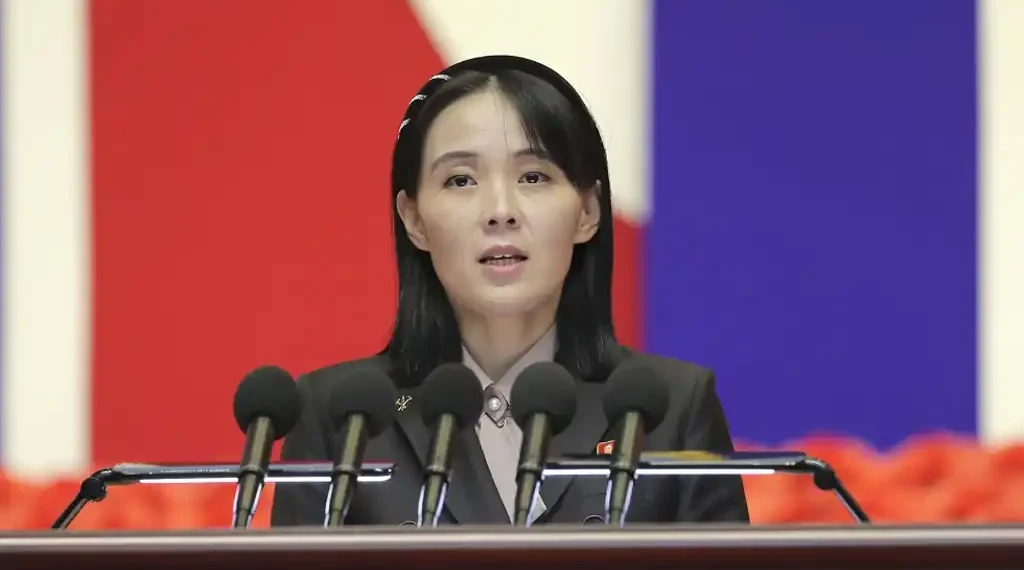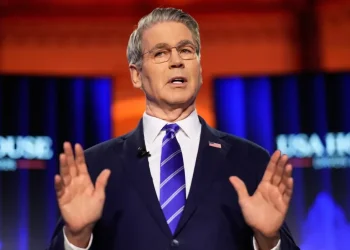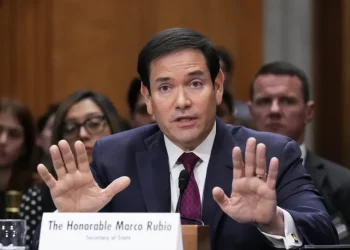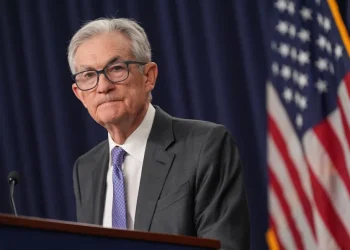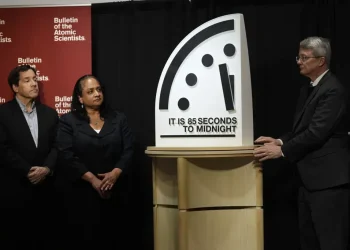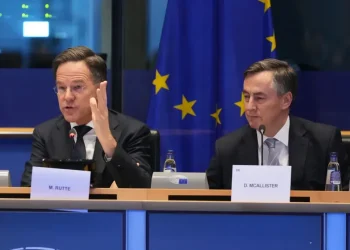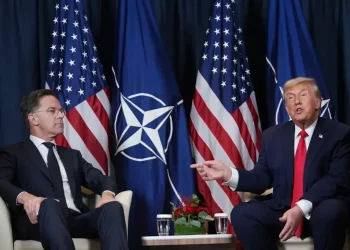Kim Yo Jong rejects diplomacy with South Korea under new leadership
July 28, 2025 – 16:30 EDT
North Korea’s top officials have issued their first official response to the South’s new administration — and it’s a firm rejection. Kim Yo Jong, the influential sister of North Korean leader Kim Jong Un, dismissed outreach efforts from South Korea’s newly elected President Lee Jae Myung, stating that there is “no interest” in dialogue under current circumstances.
Her remarks underscore Pyongyang’s continued focus on bolstering ties with Russia and building its military capabilities, while casting doubt on any near-term resumption of inter-Korean or U.S.-North Korea diplomacy.
North Korea uninterested in talks, blames South’s alliance with the U.S.
In a statement carried by the Korean Central News Agency (KCNA) on Monday, Kim Yo Jong declared that North Korea sees no reason to engage with Seoul, accusing the South of maintaining a confrontational stance despite gestures of goodwill.
“We clarify once again the official stand that no matter what policy is adopted and whatever proposal is made in Seoul, we have no interest in it and there is neither a reason to meet nor an issue to be discussed,” Kim stated.
Kim criticized what she described as Seoul’s “blind trust” in its alliance with the United States, likening the liberal administration of President Lee to its conservative predecessors in terms of policy toward Pyongyang.
This is the first formal reaction from North Korea to the Lee administration, which took office in June 2025 with a promise to pursue improved relations with the North.
Lee Jae Myung’s efforts fail to gain traction
President Lee has made several initial moves aimed at easing tensions, including halting anti-Pyongyang loudspeaker broadcasts at the border and repatriating North Koreans who had drifted south. His administration has also tried to curb activist groups from sending propaganda leaflets into the North via balloons — a move that had previously provoked harsh responses from Pyongyang.
Despite these conciliatory steps, North Korea’s leadership appears unmoved.
While Kim Yo Jong did acknowledge the “sincere efforts” of the South’s new government, she accused it of continuing to plot “confrontation” and criticized upcoming South Korea-U.S. joint military exercises, which Pyongyang routinely denounces as rehearsals for invasion.
Tensions rise over military drills
In response to North Korea’s statement, President Lee met with Unification Minister Chung Dong-young to discuss potential next steps. Chung later said he would suggest to the president that Seoul and Washington consider “adjusting” their military training schedule, possibly to encourage Pyongyang to return to the negotiating table.
However, any reduction in joint exercises is likely to face backlash from South Korea’s conservative bloc, which sees the drills as essential in deterring the North’s growing nuclear capabilities.
“Conservatives view such moves as dangerous appeasement,” said Moon Seong Mook, a senior analyst at the Korea Research Institute for National Strategy. “Kim Yo Jong’s comments signal that Pyongyang is seeking a rupture between Seoul and Washington — something it has long desired.”
Moon added that unless sanctions are lifted, North Korea has little incentive to engage in dialogue that does not offer tangible economic benefits, such as resuming shuttered inter-Korean economic projects.
Focus shifts to Russia amid diplomatic freeze
Since the breakdown of nuclear talks between Kim Jong Un and former U.S. President Donald Trump in 2019, North Korea has shifted its focus from diplomacy to strengthening ties with Russia and building up its military arsenal.
Recent reports indicate that Pyongyang has provided arms and troops to support Russia’s war in Ukraine. In return, North Korea is believed to be receiving much-needed food, fuel, and potentially military technology — though these reports have not been independently verified.
Experts say this alignment with Moscow may help Kim Jong Un offset international sanctions but also signals Pyongyang’s decreasing interest in re-engaging with Washington or Seoul.
“Kim Yo Jong’s comments are meant to reinforce national pride and justify their weapons programs,” said Leif-Eric Easley, a professor at Ewha Womans University in Seoul. “They aim to portray North Korea as strong and self-reliant, even as the country faces severe economic hardship and growing international isolation.”
Possibility of future diplomatic shifts?
Despite the firm rejection of Seoul’s overtures, some experts suggest that North Korea may still be open to adjusting its strategy, depending on how international developments unfold.
Kwak Gil Sup, director of the One Korea Center — a think tank focused on North Korean affairs — believes Pyongyang may unveil new diplomatic strategies at the next plenary meeting of the ruling Workers’ Party, expected to take place in early 2026.
“North Korea may be preparing alternative plans — a Plan B or Plan C — for its relations with the U.S. and South Korea,” Kwak said.
However, any such shift would likely depend on significant changes in the geopolitical landscape, such as eased sanctions, altered U.S. policy, or a strategic recalibration within the Kim regime.
Conclusion: A familiar stalemate, deeper divisions
The latest statement from Kim Yo Jong reinforces a familiar pattern in inter-Korean relations: hopeful outreach from the South met with cold dismissal from the North. With Pyongyang now aligning itself more closely with Moscow and continuing to reject Seoul’s proposals, prospects for renewed diplomacy remain slim.
Observers caution that without meaningful incentives or shifts in regional dynamics, North Korea will likely continue to pursue its military ambitions and use international partnerships — particularly with Russia — to bypass Western pressure.
This article was rewritten by JournosNews.com based on verified reporting from trusted sources. The content has been independently reviewed, fact-checked, and edited for accuracy, neutrality, tone, and global readability in accordance with Google News and AdSense standards.
All opinions, quotes, or statements from contributors, experts, or sourced organizations do not necessarily reflect the views of JournosNews.com. JournosNews.com maintains full editorial independence from any external funders, sponsors, or organizations.
Stay informed with JournosNews.com — your trusted source for verified global reporting and in-depth analysis. Follow us on Google News, BlueSky, and X for real-time updates.
